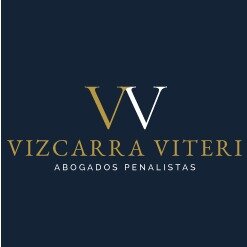Best Private Client Lawyers in Quito
Share your needs with us, get contacted by law firms.
Free. Takes 2 min.
List of the best lawyers in Quito, Ecuador
About Private Client Law in Quito, Ecuador
Private Client law in Quito, Ecuador, encompasses a wide range of legal services tailored to individuals, families, and business owners. This area of law typically addresses estate and succession planning, wealth management, family businesses, inheritance matters, asset protection, trusts and fiduciary arrangements, and tax-related issues. The focus is on providing legal guidance to help clients manage and transmit their personal and family wealth securely and in accordance with Ecuadorian law. With Quito's unique legal landscape and cultural nuances, navigating Private Client matters often requires specialized local knowledge.
Why You May Need a Lawyer
There are many situations where seeking legal advice in Private Client matters is essential. Here are some common scenarios:
- Drafting or updating a will to ensure that your assets are distributed according to your wishes
- Planning for succession in family businesses to provide for smooth transitions between generations
- Managing cross-border assets or relocating to or from Ecuador with significant personal assets
- Setting up trusts for asset protection or beneficiary planning
- Dealing with inheritance disputes or contesting a will
- Understanding and minimizing tax liabilities on inheritance, gifts, or donations
- Appointing powers of attorney or legal guardians for dependents
- Protecting the interests of vulnerable family members, such as minors or disabled relatives
- Assisting with real estate or significant financial transactions involving personal wealth
A qualified attorney can ensure compliance with Ecuadorian laws, help avoid costly errors, and provide peace of mind when dealing with sensitive family and financial matters.
Local Laws Overview
Private Client law in Quito is guided by several key legal codes and regulations, notably the Civil Code of Ecuador, specific tax laws, and local municipal regulations. Important aspects include:
- Succession law: Ecuador follows civil law traditions, with regulated rules on forced heirship and reserved portions for immediate family members. Testamentary freedom is limited compared to some other jurisdictions.
- Wills and inheritance: Wills must follow strict formalities, and intestacy rules apply if there is no valid will. Inheritance generally involves a notarial process for validation and transfer of assets.
- Taxation: Inheritance, gift, and donation taxes can apply, with rates depending on the relationship between the decedent and beneficiaries. There are reporting requirements for significant asset transfers.
- Trusts: Traditional Anglo-style trusts are not fully recognized, but alternatives exist, such as fideicomisos. These are regulated and can be used for certain asset protection or business succession purposes.
- Property rights: Foreigners are permitted to own property, but all transactions and inheritances must be registered, and local regulations must be followed to ensure legal security.
- Family law: Issues such as marriage, divorce, alimony, and guardianship are governed by national legislation, often intersecting with wealth management and succession issues.
Given these complexities, professional legal assistance is highly recommended to ensure proper compliance and protection of personal interests.
Frequently Asked Questions
What is considered a valid will in Ecuador?
A will must meet specific formalities under Ecuadorian law, including being in writing, signed by the testator and witnesses, and executed before a notary. Different types of wills exist, but public or open wills are most common.
Can I leave my entire estate to anyone I choose?
Ecuadorian law places limits on testamentary freedom. Certain portions of your estate, known as the reserved portion, must go to immediate family members, such as spouses and children. You can only freely distribute the portion not covered by these rules.
How is inheritance tax calculated in Ecuador?
Inheritance and gift tax rates vary depending on the relationship between the deceased and the beneficiary, and the total value of the inheritance. Immediate family members often benefit from lower rates or some exemptions, while more distant relatives or unrelated beneficiaries may face higher rates.
What happens if someone dies without a will?
If a person dies intestate (without a will), their estate is distributed according to the rules set out in the Civil Code. Generally, the estate passes to the spouse, children, and then to more distant relatives in a specified order.
Is it possible to avoid family disputes over inheritance?
While no approach guarantees the absence of disputes, clear estate planning, transparent communication, and legally compliant documentation can greatly reduce the likelihood of family conflicts.
Can foreigners inherit property in Quito?
Yes, foreigners can inherit and own property in Ecuador, including in Quito. The process is subject to local registration and tax regulations.
Are trusts recognized in Ecuador?
Traditional common law trusts are not recognized, but a local mechanism known as a fideicomiso exists. These can serve a similar purpose regarding asset management and succession planning, though they operate under specific rules.
How can I protect vulnerable family members?
Ecuadorian law allows for the appointment of guardians and powers of attorney to protect minors and adults who are incapacitated. It is important to execute these documents correctly for them to be legally enforceable.
What are the steps to contest a will?
If you have grounds to believe a will is invalid due to fraud, incapacity, or improper execution, you may initiate a legal challenge through the Ecuadorian courts. This process generally requires legal representation and supporting evidence.
How long does the inheritance process take?
The duration depends on the complexity of the estate, the presence of a valid will, and whether disputes arise. Straightforward cases can be processed within a few months, while complex or contested estates may take considerably longer.
Additional Resources
Several governmental and non-governmental entities can provide guidance and assistance regarding Private Client issues in Quito:
- Superintendencia de Bancos del Ecuador - For issues related to financial institutions and fiduciary services
- Registro Civil del Ecuador - For vital records and documentation needed for succession matters
- Notarías Públicas in Quito - For drafting and registering wills, powers of attorney, and succession procedures
- Servicio de Rentas Internas (SRI) - For information regarding inheritance and gift taxes
- Colegio de Abogados de Pichincha - For referrals to qualified private client attorneys in the Quito area
- Defensoría Pública del Ecuador - Provides guidance and legal aid to individuals who may qualify for public assistance
You may also find helpful brochures and guidance from international organizations that offer information on private wealth planning for expatriates and multi-jurisdictional families residing in Ecuador.
Next Steps
If you believe you need legal advice or assistance regarding Private Client matters in Quito, consider the following steps:
- Gather all relevant documents, such as deeds, identification, family records, wills, and financial statements
- Identify your specific objectives, whether they involve estate planning, asset protection, succession, or dispute resolution
- Consult with a qualified Private Client lawyer with experience in Ecuadorian law
- If necessary, engage specialized professionals (such as tax advisors or financial planners) to complement legal advice
- Ensure that all decisions and documents are legally compliant and appropriately registered with the relevant authorities
- Maintain clear records and open communication with family members as appropriate
Addressing Private Client issues proactively, with the support of skilled legal counsel in Quito, will help you safeguard your interests, respect the wishes of your loved ones, and avoid unnecessary complications in the future.
Lawzana helps you find the best lawyers and law firms in Quito through a curated and pre-screened list of qualified legal professionals. Our platform offers rankings and detailed profiles of attorneys and law firms, allowing you to compare based on practice areas, including Private Client, experience, and client feedback.
Each profile includes a description of the firm's areas of practice, client reviews, team members and partners, year of establishment, spoken languages, office locations, contact information, social media presence, and any published articles or resources. Most firms on our platform speak English and are experienced in both local and international legal matters.
Get a quote from top-rated law firms in Quito, Ecuador — quickly, securely, and without unnecessary hassle.
Disclaimer:
The information provided on this page is for general informational purposes only and does not constitute legal advice. While we strive to ensure the accuracy and relevance of the content, legal information may change over time, and interpretations of the law can vary. You should always consult with a qualified legal professional for advice specific to your situation.
We disclaim all liability for actions taken or not taken based on the content of this page. If you believe any information is incorrect or outdated, please contact us, and we will review and update it where appropriate.
Browse private client law firms by service in Quito, Ecuador
Quito, Ecuador Attorneys in related practice areas.











